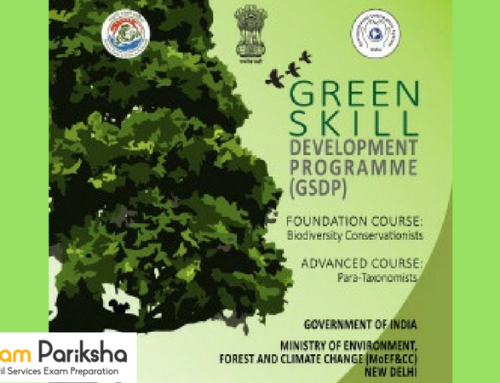According to the Environment protection act,1990, waste is defined as – any substance which constitutes a scrap material, or an effluent or other unwanted surplus substance arising from the application of any process is termed as Waste.
Waste is classified as the following:
- Biodegradable waste: That can be degraded through microbial activity. eg: food residue, human excreta, etc.
- Non-Biodegradable waste: Such as Petroleum, plastic, styrofoam, glasses, etc.
- Biomedical waste: Such as Needle, syringe, body parts, etc.
- E-waste: Comprises of waste electrical and electronic equipment, whole or in part or rejects from their manufacturing and repair process, which are intended to be discarded. Comprises of Computer parts, batteries, white goods (AC, washing machine etc), tube light, CFL, printer, charger, etc.
Understanding Waste management:
Waste management is a collective activity involving segregation, collection, transportation, re-processing, recycling and disposal of various types of wastes.
Solid Waste Management
Solid Waste Management includes the entire process of dealing with solid waste:
- Collection of waste;
- storage;
- transportation;
- segregation;
- disposal.
Solid Waste Management in India:
Solid Waste Management is a major problem in India. According to official estimations, around 62 million tonnes of solid waste is generated in the country annually.
Recently, the collapse of a great wall of garbage in east Delhi’s Ghazipur area served a stark reminder to the authorities as well as citizens about India’s neglected waste management crisis. New Delhi generates more than 10,000 tonnes of garbage on daily basis, posing public safety hazard particularly in the dumping sites.
The extent of the current Waste Managment crisis is understood by the very fact that only 80 percent of waste that is generated in urban areas is collected and merely 28 percent of it is processed.
The dump sites in most Indian cities are presently overburdened. Urban landfill sites having biodegradable waste are a major cause of odour pollution often leading to headaches, nausea, anxiety, sleep disorders among others.
A study found out that more than three-fourths of solid waste management budget is allotted to collection and transportation, leaving very little for processing or resource recovery and disposal of waste.
Issues in solid waste management include:
Lack of scientific and systematic storage of waste at source originating from the problem of segregation; Dumping sites are left unattended leading to serious environmental issues.
At source, people generally don’t arrange to provide proper dustbins for segregated waste in residential as well as commercial areas.
Challenges to Waste Management in India:
Finding new landfills is seen as merely relocating the problem of garbage piles. It is noteworthy that waste management becomes challenging when segregation of the garbage is not performed and recyclables, organic waste and toxic wastes are all dumped together.
Increasing urbanisation is putting additional pressure on landfill sites located in urban areas. Waste management rules were notified more than a year ago, yet they are not implemented.
The Swacch Bharat Programme has focussed mainly on individual action to keep streets clean without pressure on State and municipal authorities for scientific management of the waste.
Organic waste that can potentially help green cities and also feed small and affordable household biogas plants is simply ignored. india is doing little t prevent plastic from drifting into suburban garbage, rivers, water bodies and cattle feeding on dumping sites.
Considering that waste volumes are estimated to grow to 165 million tonnes a year by 2030, many more suburbs are threatened by collapsing or burning trash mountains.
A report by IIT Kanpur (2006) found the potential of recovering at least 15 per cent or 15,000 MT of waste generated every day in the country. This, the report said, could also provide employment opportunities to about 500,000 rag-pickers.
Successful Waste Management practices:
Rwanda and Kenya can serve as precedents for India which have introduced stiff penalties for use of flimsy plastic bags.
In the country itself, Alappuzha in Kerala and Panaji in Goa can serve as good examples because they do not have any landfills. Both these cities convert their compost or biogas and recycle plastic, glass, metals and papers.
Green protocol, which is aimed at reducing garbage generation discouraging disposables and using reusable alternatives.
Recent initiative by Union Government
Ministry of Housing & Urban Affairs has launched ‘My Home-My Neighborhood’ (Ghar Bi Saaf-Pados Bhi Saaf) campaign with the following six components:
- Segregation of waste at source
- Compost making from wet waste within the premises/ neighbourhood/area
- Recycling of dry waste
- Freeing the neighbourhood from open defecation and open urination
- Motivating the residents of neighbourhood against throwing garbage in open spaces; and
- Adopting a nearby park or open place for collection and waste segregation.
Conclusion:
Right to a healthy environment is a fundamental right under Article -21 of Indian Constitution. Though the Government plays a significant role in waste management (Art-48A), it should be also the responsibility of every citizen to improve the quality of the environment around him/her (Art-51(A)G). Compost pits should be constructed in every locality to process organic waste. Community participation has a direct bearing on efficient waste management in the country.





